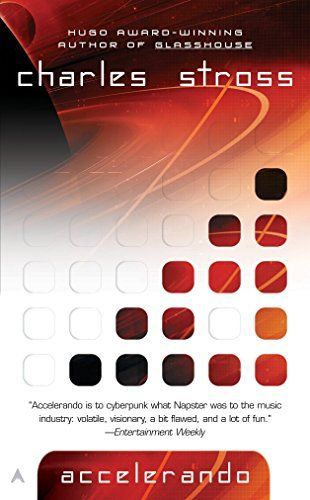
Accelerando
The Singularity. It is the era of the posthuman. Artificial intelligences have surpassed the limits of human intellect. Biotechnological beings have rendered people all but extinct. Molecular nanotechnology runs rampant, replicating and reprogramming at will. Contact with extraterrestrial life grows more imminent with each new day. Struggling to survive and thrive in this accelerated world are three generations of the Macx clan; Manfred, an entrepreneur dealing in intelligence amplification technology whose mind is divided between his physical environment and the Internet; his daughter, Amber, on the run from her domineering mother, seeking her fortune in the outer system as an indentured astronaut; and Sirhan, Amber’s son, who finds his destiny linked to the fate of all of humanity. For something is systematically dismantling the nine planets of the solar system. Something beyond human comprehension. Something that has no use for biological life in any form...
Reviews
Pierre@pst
Gavin@gl
Jiahao Chen@jiahao
Taylor@taylord
Cindy Lieberman@chicindy
Jan Jackson@pilgrim
Nat Welch@icco
dead line@deadline
Carlo Zottmann@czottmann
JP@byjp
Eric Jacobsen@eric_wvgg
Shane Segal@smsegal
0xADADA@0xadada
Claudiu@claudiu
Chris Wilcox@ckwilcox
TL Wright@tlwright
Josh Warner@joshwarner
Justin Jerome Price@so64
Janice Hopper@archergal
Jon Noronha@thatsjonsense
Ian Marchant @stranstringulon
Peter Tving@tving
Aria Stewart@aredridel
Colin O'Brien@onepointzero